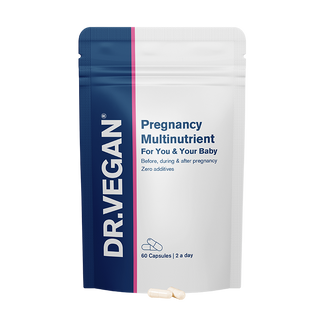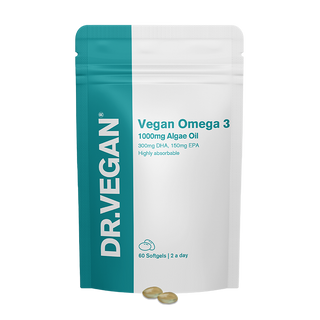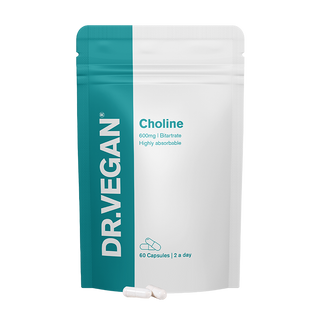Nutritionist advice for a healthy pregnancy

Pregnancy is a crucial time where optimal nutrition and self-care are incredibly important for the mother's body, mind, and of course the growing baby.
Our Registered Nutritionist, Isabelle Nunn MPHARM Hons, Dip.NT, mBANT, CNHC, provides her top nutrition tips on what to expect and how to help you thrive through pregnancy and beyond.
First trimester
As hormones change, unwanted symptoms such as low energy, morning sickness or dizziness can occur. Dizziness can also be caused by a lowering of blood pressure, extreme nausea or vomiting. You may also enjoy reading 'How to manage blood pressure naturally'.
Morning sickness may become so severe, putting you at risk of nutrient deficiencies which can be detrimental, especially when so much critical growth is happening in those early weeks. Be mindful of starting your prenatal supplements at this stage.
Pregnancy Multinutrient

The immune system
Your immune system can really take a toll in the first trimester. Aim to consume immune supporting foods and focus on Zinc, Selenium, Vitamin C, Vitamin D, alongside plenty of rest and fluids.
Key nutrients
- Folic acid is the form of folate found in supplements and fortified foods. It helps prevent serious problems with the baby's developing brain and spinal cord. The NHS recommendation is to supplement with 400mcg at preconception and during pregnancy. Folic acid is a key ingredient in our Pregnancy Multinutrient.
- Choline is an essential nutrient for mothers and developing babies’ needs. Requirements are increased and although present in dietary sources, the amounts are insufficient! Learn more in 'The benefits of Choline and where to find it'.
- Magnesium, Zinc and B vitamins can help alleviate nausea.
Second trimester
Oral care, fluctuating blood sugar levels and travelling.
As you feel more energised and comfortable with your changing body, oral care is probably the last thing on your mind! However, hormonal changes can impact on gums. Gums can be more prone to plaque, causing gingivitis and bleeding gums. If left untreated, gingivitis can progress to periodontitis, a condition that affects about 60-75 % of pregnant women! Dental care and support is key. If in pain, paracetamol can be safely taken, while making sure to correct Vitamin C and B12 deficiencies. You may like to read 'How to know if you're deficient in Vitamin B12'.
Supporting blood sugar levels can help reduce dizziness and morning sickness. Focus on diet , particularly being mindful of Vitamin B6 and Chromium food sources.
In terms of aeroplane travel, flying now is the best time, once the morning sickness has passed and before becoming an uncomfortable size and weight to board a flight with ease.
Key nutrients
Iron is important for the body in making haemoglobin, a protein in red blood cells that carries oxygen to the body’s tissues. Iron is incredibly important, particularly for women.

Iron requirements during pregnancy double as the body needs iron to make more blood to supply to the baby. Iron deficiency can occur if a mother lacks Iron stores or isn’t consuming enough. We recommend speaking to your midwife or dedicated healthcare practitioner to check your Iron levels.
Third trimester
Heartburn and Insomnia
Heartburn can occur when the growing baby presses against the stomach. Dietary and lifestyle modifications may help. As the body changes and foetal growth continues, insomnia may occur. Trying a sleep routine, gentle exercise and increasing your Magnesium intake can help.
Vegan Omega 3

Key nutrients
Omega-3 fatty acids play a big role in baby’s brain development which is made up of nearly 60% fat, specifically DHA. Gut-loving fibre foods are also advised.
10mcg of Vitamin D3 is recommended during pregnancy. Low Vitamin D status can contribute towards gestational diabetes and pre-eclampsia.

Fourth trimester
The mother's body needs healing support from the delivery and the hormone shifts that occur postpartum. Having a nutrient-dense diet and continuing prenatal vitamins for up to 3 months after birth may help.
Top 3 recommended supplements
Choosing the right supplements, free from additives which can be harmful to you and baby is really important. If you're not sure what to look out for, we recommend reading 'Check the label for these ingredients' and '7 ingredients to avoid in supplements'.
1. DR.VEGAN Pregnancy Multinutrient
Led by science, our Pregnancy Multinutrient formula provides all the recommended nutrients for all four trimesters, as advised by the UK Department of Health. If breastfeeding, we recommend continuing for up to 6 months after birth of your child. Learn more about why our Pregnancy Multinutrient is so good.
2. DR.VEGAN Omega 3
Our sustainable and ethically sourced Vegan Omega 3 provides 1000mg of Omega oil in its purest form, sourced from algae, and providing the optimal levels of 300mg DHA and 150mg EPA.
3. Choline and Folic Acid
Folic acid and Choline are the two supplements that should be started at the preconception phase. Once pregnant, the mother can move on to a prenatal formula. Choline is also part of our Pregnancy Multinutrient formula.
Discover our range of Vegan Probiotics, Vitamins & Supplements.
Want to hear more from our nutritionists? Sign up to our email newsletter for insights and exclusive offers:
References:
- NHS Dental Care
- Pregnancy and periodontal disease: does exist a two-way relationship? - PubMed (nih.gov)
- Indigestion and heartburn in pregnancy - NHS (www.nhs.uk)
- Is it Safe to Exercise While Pregnant - Everything You Need to Know The Bump Plan
- Pregnancy and Spina Bifida
- Woody CA et al. (2017). A systematic review and meta-regression of the prevalence and incidence of perinatal depression. J Affect Disord. (219): 86-92.
- Possible prevention of post-partum depression by intake of omega-3 polyunsaturated fatty acids and its relationship with interleukin 6 - PubMed (nih.gov
- For more support with vegan pregnancy check out Bump2Baby Nutrition.


















